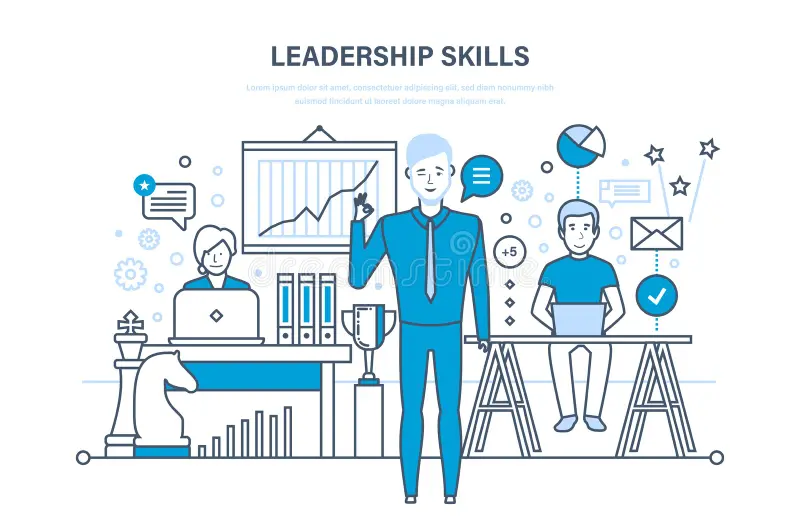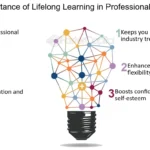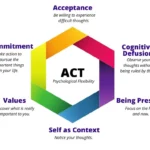Leadership skills have become the dire need if one wants to grow career-wise in this fast-moving professional world. Be it climbing the corporate ladder or leading people on your own, strong leadership skills can make all the difference.
In today’s fast-paced professional panorama, Leadership Skills with strong management competencies are vital for professional success. Whether you aim to climb the corporate ladder or encourage a team of your very own. Effective leaderships skills control abilities may be the important differentiator that sets you apart.
Employers increasingly seek those who display management traits like motivation, strategic questioning, and a capability for riding brilliant alternatives.
We shall look into some realistic ways to develop them to help one achieve their career aspirations in this article.
Why Skills in Leadership Are So Important?
The concept of leadership encompasses more than simply the management of a group; it also includes the ability to motivate other people, implement strategic choices, and encourage constructive change. Moreover, employers get attracted to leaders who can communicate well, motivate others, and handle conflicts. Such skills are very valuable for promotion, as they will show you what greater responsibility looks like.
Check Your Leader Skills Now
Know where you are before starting out on your leadership development journey. This includes self-reflection, feedback from colleagues, and professional assessments. Know where you excel and where you’re weak. Knowing your strengths and weaknesses is the first step in designing a management development program in your own individual style.
Develop Emotional Intelligence
EQ is described as the cornerstone to effective leadership. The ability to recognize, understand, and manage your emotions and those of others, that is what EQ entails. High-EQ leaders are empathetic, adaptive, and relations-driven. Here’s how to raise your emotional intelligence:
Practice Self-Awareness:
Engage in self-reflection about your feelings and their impacts on your decisions.
Develop Empathy:
Try to understand the viewpoints and feelings of others at work.
Manage Stress:
Learn how to control stress and remain composed under pressure.
Communication is one of those leadership competencies which, when not exercised well, can make or break your effectiveness. The leader who is good at communicating his vision clearly and actively listening to others is also a good leader. If you want to improve your ability to communicate, here are some suggestions:
Please be clear and get to the point:
Try to avoid using jargon. Communicate using a language that is as easy to digest as feasible.
Active Listening:
When people talk to you, give them your time—listen carefully, don’t interrupt. This builds trust and encourages collaboration.
Give Constructive Feedback:
To give clear, actionable, and positive feedback for improvement.
Develop Decision Making Skills.
Good leaders are quick and can make thoughtful decisions on the spot. This requires one to have the ability to think critically and solve problems and also be able to balance two or several sides of an argument.
To build up decision-making skills:
Stay Straight to the Point; Don’t Use Jargon. Use terminology that is as easy to understand as you can.
Active Listening:
When people talk to you, give them your time listen carefully, don’t interrupt. This builds trust and encourages collaboration.
Give Constructive Feedback:
To give clear, actionable, and positive feedback for improvement.
Develop Decision Making Skills.
Good leaders are quick and can make thoughtful decisions on the spot. This requires one to have the ability to think critically and solve problems and also be able to balance two or several sides of an argument.
To build up decision-making Leadership skills:
Get the Facts:
Obtain the necessary data before acting. Analyze All Alternatives: Evaluate each alternate’s advantages and disadvantages.
Take Responsibility:
Take responsibility for the decisions that you make, and be prepared to change them if things do not turn out as predicted. A leader with this kind of mindset will embrace more challenges, learn from feedback, and persist amidst difficulties. Here is how you can cultivate this mindset:
Embrace Challenges:
View challenges as chances for learning, not obstacles for growth. Continue Learning: Always make a constant effort to seek out knowledge and new experiences so that you can learn new skills. Accept and
Learn from Criticism:
Use feedback as a tool for growth, not as a personal affront. Set a Good Example To hone one’s leadership abilities, setting a good example is perhaps the most effective strategy. If you wish to show other people integrity, accountability, and commitment, demonstrate these qualities yourself. By acting in harmony with your words, you strengthen your credibility and motivate others to do the same.
Look for Leadership skills Opportunities
It basically works as a very good exercise to practice your leadership skills. Get involved in some leadership opportunity in practice; it can be part of your existing job or could be for activities that you do for free. Leading on projects, peer mentoring, or being involved in organizing are great ways to practice and develop your leadership.
Conclusion
Like other competencies, leadership skills develop with time, in conjunction with many others. like self-awareness, emotional intelligence, communication, and practical experience. Develop these skills, and you will be ready for the next job, and you will be invaluable to an employer.
Start off on that track right away with an honest assessment of where you are, setting clear goals, and going for opportunities to lead. It takes dedication and persistence in developing leadership abilities to achieve all professional aspirations.
FAQs
Why are leadership skills essential for career growth?
Leadership capabilities are important due to the fact they allow people to inspire, influence, and manual others effectively. Strong management no longer best enables you to stand out to employers. However additionally opens doorways for career advancement. As groups often are seeking leaders to pressure groups, control initiatives, and put in force strategic adjustments.
How can I start developing my leadership skills?
Start via way of assessing your modern-day skills and identifying regions for increase. Consider including specific goals, which include enhancing communication or selection-making abilities. You can also look for mentorship, tackle management roles in your business corporation, or engage in education applications that target key leadership attributes.
What role does emotional intelligence play in leadership?
Emotional intelligence (EQ) is foundational to effective control. EQ consists of knowledge of managing your emotions and empathizing with others. Leaders with excessive EQ are better at managing pressure, handling conflicts, and fostering wonderful painting surroundings. All of which may be critical for team fulfillment and personal career boom.
How important is communication for effective leadership?
Communication is a core management capability. Effective leaders can articulate their vision, actively pay attention to team members, and offer fine feedback. Good communication builds trust, promotes collaboration, and guarantees that everybody works in the direction of shared dreams, which is critical in any management feature.
Why is self-assessment important in developing leadership skills?
Self-assessment allows you to understand your strengths and weaknesses, imparting a clean place to begin growth. Regular mirrored images, along with aspect remarks from others, allow you to regulate your approach and recognition of regions that need development. Self-recognition is a crucial trait for leaders because it promotes non-stop mastering and adaptability.
What are a few commonplace limitations in leadership development, and how can they be overcome?
Common obstacles include time constraints, loss of remarks, and problems managing proceedings. To triumph over those, prioritize studying via dedicating normal time to expertise improvement. Search for positive feedback from established friends or mentors , and reflect on consideration of complaints as a chance to increase. Persistence and openness to development are critical to growing effective management abilities.
How can I measure my progress in developing leadership skills?
To measure progress, set specific, achievable goals related to leadership like enhancing communication or team-building skills. Track your achievements, seek feedback from colleagues, and reflect on improvements in your decision-making or interpersonal relationships. Progress is often gradual, but these steps help you recognize growth over time.









